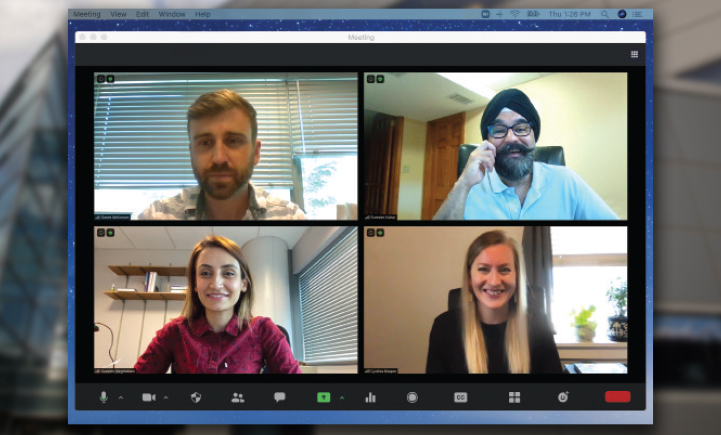What’s next? Binghamton University School of Management faculty make predictions about post-COVID world
The long-term effects of the COVID-19 pandemic are just beginning to be realized

The long-term effects of the COVID-19 pandemic are just beginning to be realized. Many agree that there is no going back to the way things were before, which begs the question: What’s next?
We asked Binghamton University School of Management faculty to weigh in with their predictions.
Dan McKeever, assistant professor of finance
I don’t think we’re going to be in a post-COVID world for a while because we are still very much in the middle of this. The United States has found itself in a position where it’ll take years to recover due to inaction and indecision in the spring.
However, the pandemic has accelerated technological changes that we were already slowly headed toward. Things like remote work, distance learning and virtual doctor appointments were already happening on a smaller scale, but they are all now mainstream. Long-term adoption will be tough, and investments will be needed to make sure families and individuals are being supported.
While the stock market has recovered many of its losses, the “real” economy, which includes unemployment, is in shambles. We are still seeing ripple effects from the 2008 economic crisis, which tells me we’ll be seeing ripple effects from this for many years to come. Rebuilding is going to be brutal and it’s going to be costly.
My hope is that we look back on this and learn from it. Another pandemic will eventually hit, even if decades from now, and hopefully we’ll be much better prepared.
Saeideh Mirghorbani, assistant professor of business analytics and operations
The pandemic will force changes in our healthcare system to make it more flexible and versatile.
Hospitals will need to be easier to repurpose to deal with the most pressing issues, and we should look at ways to move “mini” hospitals to where patients actually are. Whether this is setting up a hospital in a nearby facility, or finding ways to move into a patient’s home, we need to be able to move healthcare systems to where the problems are.
People have been postponing regular check-ups for months now as a result of the pandemic. To encourage patients to start coming back again, and to ensure revenue is still flowing in, more clinics should consider adopting virtual appointments or healthcare apps, and then adjust prices accordingly.
As virtual healthcare continues to take hold, the labor market will change as well. We’ll need the software and technologies to accommodate this shift, and that will create new opportunities.
Many in healthcare have felt the need for these kinds of changes for a long time, but it’s a very hard system to change. However, the external pressure of the pandemic is now forcing the system to respond. I believe a lot of positive changes can happen.
Surinder Kahai, associate professor of management information systems
While there’s been an embrace for working from home out of necessity, I don’t think it’s sustainable in the long run. Innovation happens in spontaneous conversations in face-to-face settings, not in scheduled Zoom meetings. But there are benefits to working from home, so I believe organizations will try to find the ideal blend of virtual and in-office work.
Investments in artificial intelligence are being sped up, especially in manufacturing, due to outbreaks in high-density workforces. But it won’t just be affecting blue collar jobs — it’ll affect white collar professions as well. Will this lead to job displacement? Most likely, although how much is still unknown.
Many universities have been resistant to online learning, but are now waking up to the benefits. While there is value in the on-campus experience, there will be more demand for virtual options for those who can’t justify the cost of it. Colleges will have to improve their online education to compete not only with other colleges, but with options like Coursera and online certification programs.
I believe this pandemic has given people the time for introspection. I do think you’ll see people transition toward jobs that give them purpose and allow them to meaningfully contribute to the world around them.
Cynthia Maupin, assistant professor of leadership
When people say we need to return to normal, my reaction is that there is no normal anymore. A lot of what was normal is going to change.
I think it’s clear that working remotely is going to stick around. Organizations once hesitant to try it are now seeing benefits, and I don’t think employees are eager to go back to an office full time if they feel they can do their job from home.
Companies will have to accommodate. I think you’ll see advancements in virtual teamwork since teams are now spread out across the globe. Better work management processes and programs will be critical, especially since team members may never be in the same room together.
Organizations will need to make a concerted effort to build social bonds between people, now that it’s less likely you’ll see coworkers in the hallway or at the coffee machine. Without these informal conversations, which are very important, there will be a need for meaningful virtual networking, especially for people new to an organization.
I also think organizations will be more cognizant of hygiene going forward. Those plexiglass barriers are here to stay, even after the pandemic is over.
